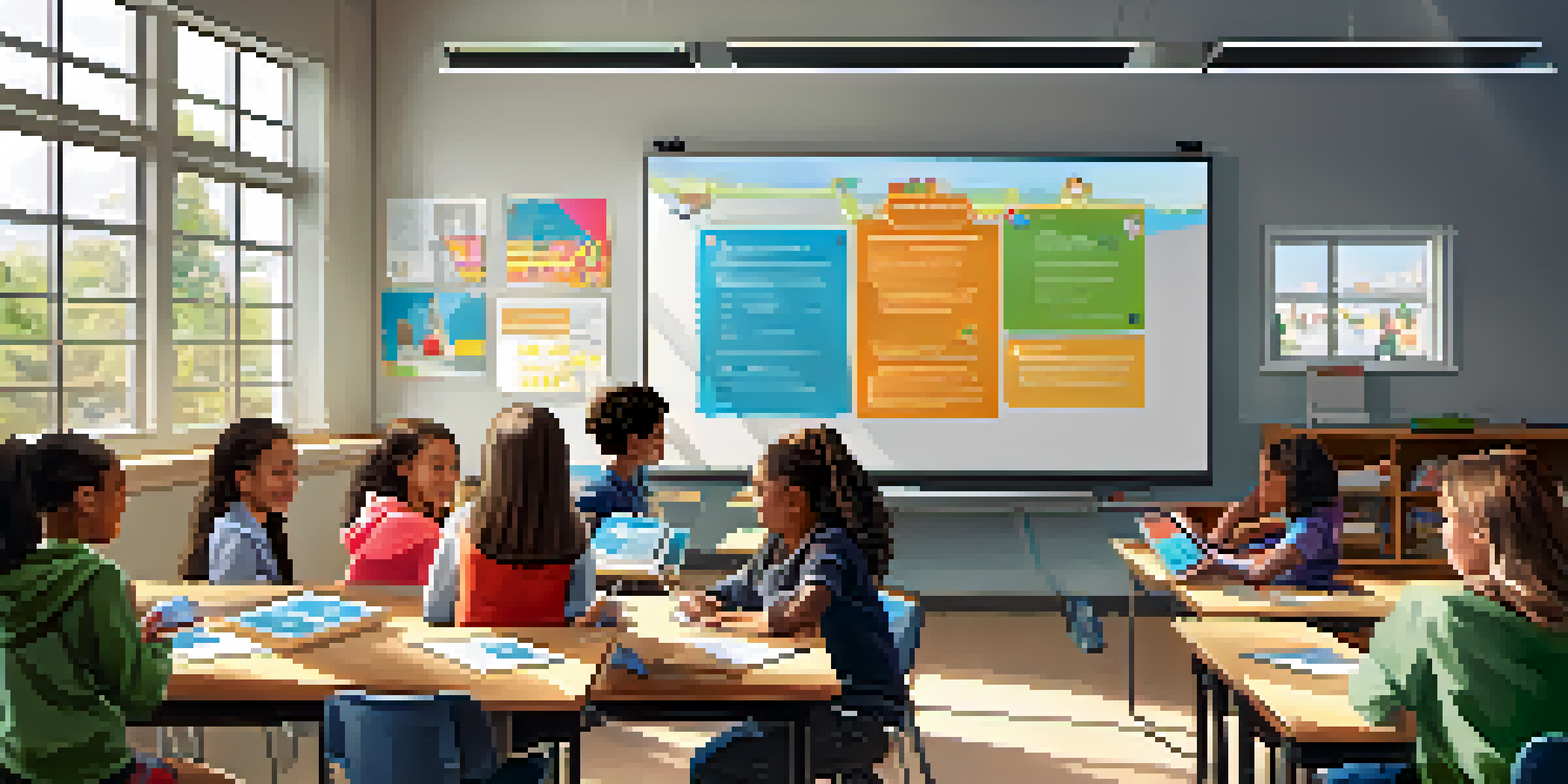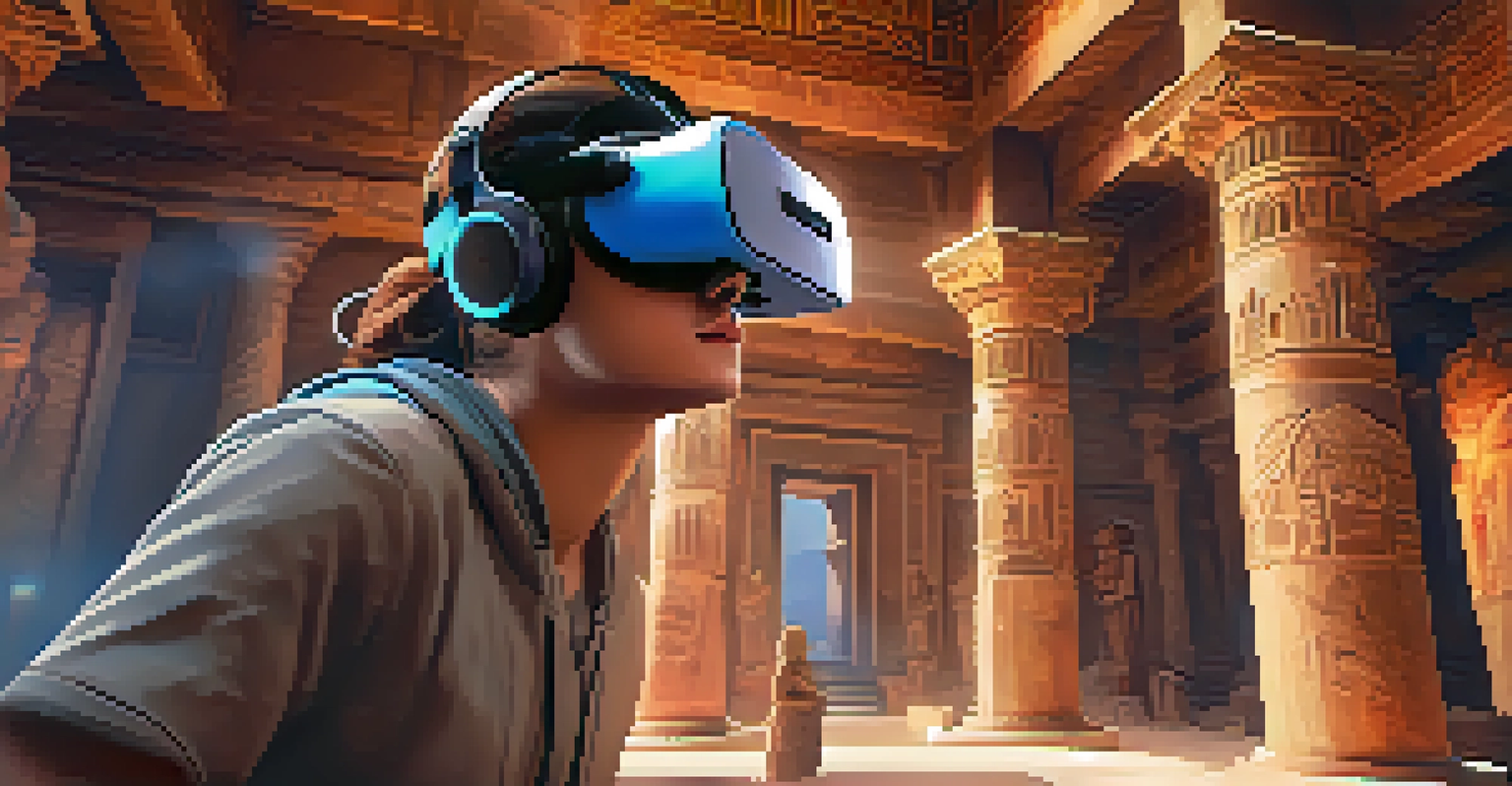Future of Education in Minneapolis: Trends and Predictions

Embracing Technology in Classrooms
As we look towards the future, technology is poised to play a central role in education. In Minneapolis, schools are increasingly integrating tools like tablets and interactive whiteboards to enhance learning experiences. This shift not only makes lessons more engaging but also allows for personalized learning paths tailored to each student's needs.
Technology will not replace teachers, but teachers who use technology will replace those who don’t.
Moreover, virtual and augmented reality are set to transform traditional teaching methods. Imagine students exploring ancient civilizations through a VR headset or conducting science experiments in a fully immersive environment. Such experiences can deepen understanding and retention, making education more impactful.
However, this technological embrace brings challenges as well, such as ensuring equitable access for all students. As Minneapolis moves forward, it's crucial to address these disparities, ensuring every learner can benefit from the digital revolution.
The Rise of Hybrid Learning Models
Hybrid learning, which combines online and in-person education, is gaining traction in Minneapolis. This model offers flexibility, allowing students to learn at their own pace while benefiting from face-to-face interactions. As families seek balance in their educational journeys, schools are adapting to meet these evolving needs.

For instance, some Minneapolis schools are implementing blended learning programs where students attend in-person classes part of the week and complete online coursework the rest. This approach not only caters to diverse learning styles but also prepares students for the increasingly digital workforce.
Embracing Technology in Classrooms
Minneapolis schools are integrating technology to enhance personalized learning and improve student engagement.
Nevertheless, ensuring that educators are equipped to manage hybrid classrooms remains a priority. Professional development and support for teachers will be essential in making this model successful and sustainable.
Focus on Mental Health and Well-Being
Mental health awareness has become a crucial topic in education, and Minneapolis is no exception. As students face unprecedented challenges, schools are prioritizing mental well-being alongside academic achievement. This holistic approach recognizes that a healthy mind is essential for effective learning.
Education is the most powerful weapon which you can use to change the world.
Many Minneapolis schools are now incorporating wellness programs and counseling services to support students. Initiatives like mindfulness training and stress management workshops can empower young learners to navigate their emotional landscapes. Such programs foster resilience and equip students with tools to thrive both inside and outside the classroom.
Furthermore, engaging parents and the community in mental health discussions is vital. By fostering a culture of openness and support, Minneapolis can create a nurturing environment that promotes overall well-being for all students.
Personalized Learning Approaches Gain Popularity
Personalized learning, which tailors education to individual student needs, is becoming increasingly popular in Minneapolis. This approach acknowledges that each student learns differently and allows for customized curricula that cater to their strengths and interests. Teachers are leveraging data to create targeted learning plans that help students excel.
For example, adaptive learning software can analyze a student's performance and adjust the curriculum accordingly, providing additional support where needed. This not only boosts student engagement but also fosters a sense of ownership over their learning journey.
Focus on Mental Health Support
Schools in Minneapolis are prioritizing mental well-being alongside academics to foster a healthier learning environment.
As more schools adopt personalized learning models, it's essential to ensure that teachers receive the necessary training and resources. This will enable them to effectively implement these strategies and truly make a difference in their students' education.
The Role of Community Partnerships in Education
Community partnerships are emerging as vital components of education in Minneapolis. Schools are collaborating with local organizations, businesses, and nonprofits to enhance educational opportunities for students. These partnerships can provide resources, mentorship, and real-world experiences that enrich the learning environment.
For instance, internships and job shadowing programs can connect students with local employers, giving them a taste of various career paths. Such experiences not only prepare students for the workforce but also help them build valuable networks within their community.
Moreover, engaging parents and community members in the educational process fosters a sense of belonging and support. By working together, Minneapolis can create a robust educational ecosystem that benefits all students.
Equity and Inclusivity as Educational Priorities
Equity and inclusivity are becoming central themes in Minneapolis education as schools strive to create environments where every student feels valued. Addressing systemic inequities and promoting diversity in curricula are essential steps toward fostering a more inclusive educational landscape. This shift not only enriches the learning experience but also prepares students to thrive in a diverse society.
Initiatives aimed at increasing representation in teaching staff and curricula are crucial in this effort. By exposing students to various perspectives and cultures, schools can cultivate empathy and understanding among young learners.
Equity and Inclusivity in Education
Efforts to address systemic inequities and promote diversity are becoming central themes in Minneapolis education.
As Minneapolis continues to prioritize equity and inclusivity, it's important to involve students, parents, and community members in the conversation. Their voices can help shape policies and practices that lead to meaningful change.
Preparing Students for the Future Workforce
As the job market evolves, Minneapolis education must adapt to prepare students for the future workforce. Skills such as critical thinking, creativity, and collaboration are increasingly sought after by employers. Schools are rethinking their curricula to emphasize these competencies and ensure students are ready to navigate an ever-changing landscape.
Career and technical education (CTE) programs are gaining prominence, providing students with hands-on experience in various fields. By partnering with local businesses, schools can offer training that aligns with industry demands, giving students a competitive edge in the job market.

Furthermore, fostering a culture of lifelong learning is essential. Encouraging students to embrace curiosity and adaptability will equip them with the tools they need to thrive in their careers, no matter how the workforce evolves.
The Influence of Policy Changes on Education
Policy changes at the local, state, and federal levels significantly impact the future of education in Minneapolis. As lawmakers grapple with issues such as funding, curriculum standards, and teacher support, the decisions made can shape the educational landscape for years to come. Staying informed and engaged in these discussions is crucial for educators, parents, and students alike.
For instance, recent legislation focusing on increased funding for under-resourced schools presents an opportunity to address long-standing inequities. By advocating for policies that support equitable access to quality education, Minneapolis can ensure that every student has the opportunity to succeed.
Additionally, fostering collaboration between policymakers and educators can lead to more effective solutions. By working together, they can create policies that reflect the needs of the community and ultimately enhance the educational experience for all students.